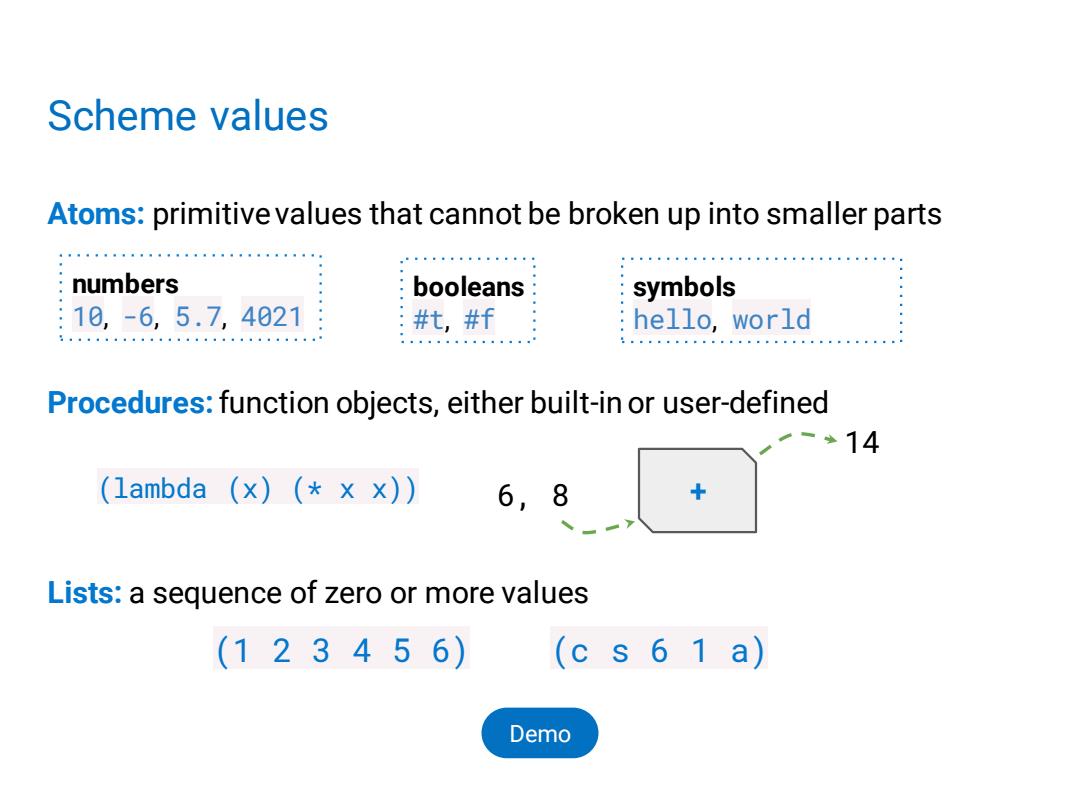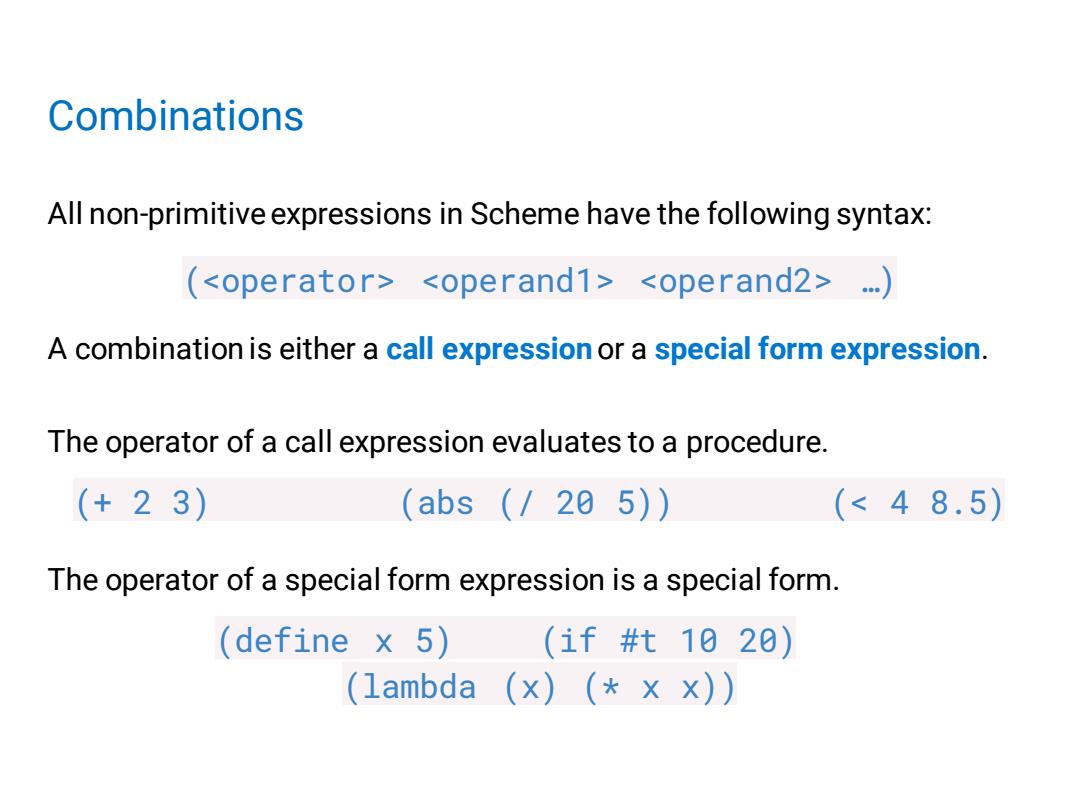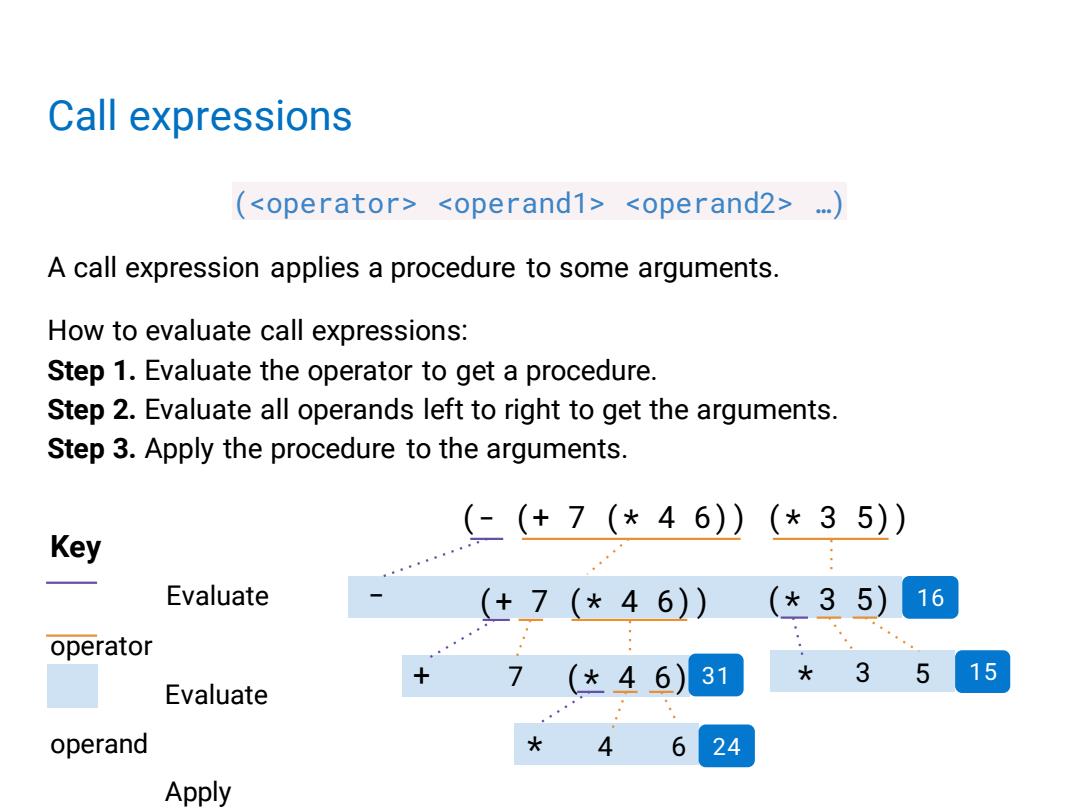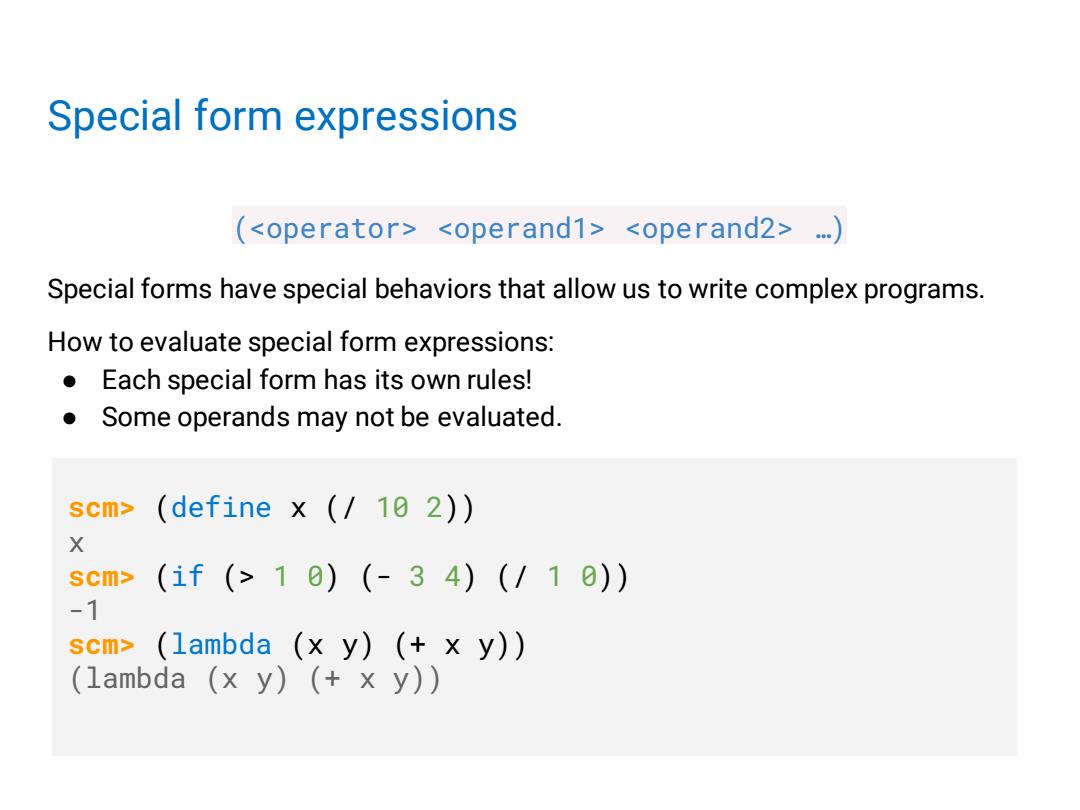
Scheme values Atoms:primitive values that cannot be broken up into smaller parts numbers booleans symbols :10,-6,5.7,4021 #t,#f hello,world Procedures:function objects,either built-in or user-defined 2-14 (1ambda (x)(xx)) 6, 8 Lists:a sequence of zero or more values (123456) (c s 6 1 a) Demo
Scheme values Atoms: primitive values that cannot be broken up into smaller parts Procedures:function objects, either built-in or user-defined Lists: a sequence of zero or more values numbers 10, -6, 5.7, 4021 symbols hello, world booleans #t, #f (1 2 3 4 5 6) (c s 6 1 a) 6, 8 + 14 (lambda (x) (* x x)) Demo

Combinations All non-primitive expressions in Scheme have the following syntax: (<operator><operand1><operand2>.. A combination is either a call expression or a special form expression. The operator of a call expression evaluates to a procedure. (+23) (abs(/285)) (<48.5) The operator of a special form expression is a special form. (define x 5) (1f#t1020) (1ambda (x)(xx))
Combinations All non-primitive expressions in Scheme have the following syntax: (<operator> <operand1> <operand2> …) A combination is either a call expression or a special form expression. The operator of a call expression evaluates to a procedure. (+ 2 3) (abs (/ 20 5)) (< 4 8.5) The operator of a special form expression is a special form. (define x 5) (if #t 10 20) (lambda (x) (* x x))

Call expressions (<operator><operand1><operand2>) A call expression applies a procedure to some arguments. How to evaluate call expressions: Step 1.Evaluate the operator to get a procedure. Step 2.Evaluate all operands left to right to get the arguments. Step 3.Apply the procedure to the arguments. (-(+7(*46)(*35) Key Evaluate (+7(*46)) (*35) 16 operator 7(*46)31 大3 5 15 Evaluate operand 4 6 24 Apply
(* 4 6) Call expressions (<operator> <operand1> <operand2> …) A call expression applies a procedure to some arguments. How to evaluate call expressions: Step 1. Evaluate the operator to get a procedure. Step 2. Evaluate all operands left to right to get the arguments. Step 3. Apply the procedure to the arguments. (- (+ 7 (* 4 6)) (* 3 5)) - (+ 7 (* 4 6)) + 7 * 4 6 * 3 (* 3 5) 5 24 31 15 16 Key Evaluate operator Evaluate operand Apply

Special form expressions (<operator><operand1><operand2>) Special forms have special behaviors that allow us to write complex programs. How to evaluate special form expressions: Each special form has its own rules! ● Some operands may not be evaluated. scm> (define x (/10 2)) X scm> (if(>18)(-34)(/10)) -1 scm> (1 ambda(xy)(+xy)) (lambda(xy)(+xy))
Special form expressions (<operator> <operand1> <operand2> …) Special forms have special behaviors that allow us to write complex programs. How to evaluate special form expressions: ● Each special form has its own rules! ● Some operands may not be evaluated. scm> (define x (/ 10 2)) x scm> (if (> 1 0) (- 3 4) (/ 1 0)) -1 scm> (lambda (x y) (+ x y)) (lambda (x y) (+ x y))